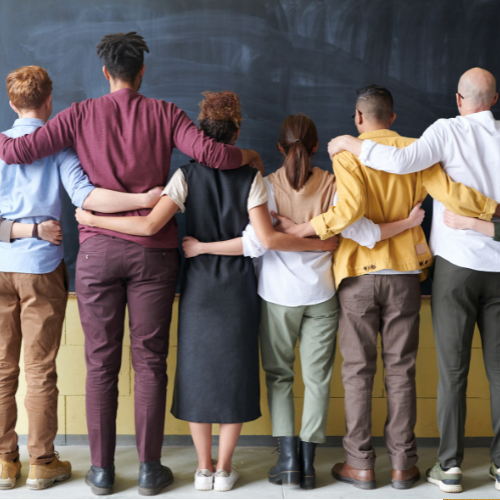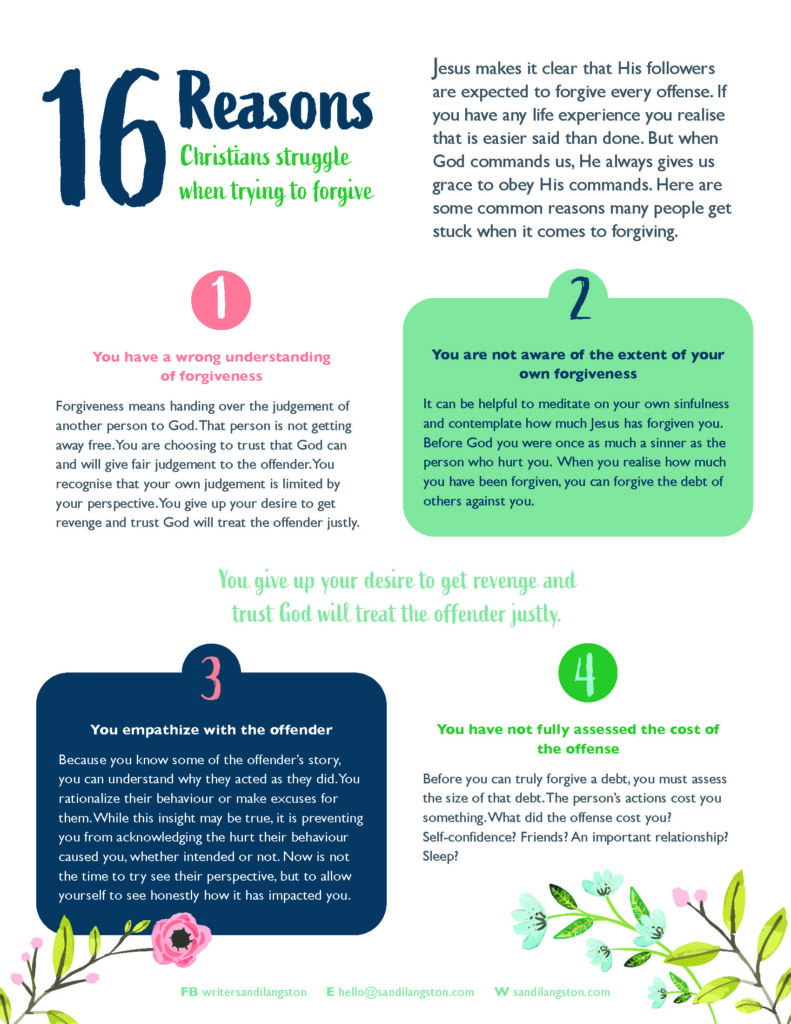Discrimination: We are all us
South Africa is known worldwide for its era of Apartheid. I grew up in Pretoria, but I was too young to notice or understand the legislated racial discrimination. Years later I looked back at school photos: There were no Black children in my Grade 1 class and only one in Grade 2. Over the years the ratio shifted to represent the majority Black population more accurately.
Apartheid epitomizes the fact that people often allow differences to be a threat instead of an asset. When faced with a threat, we operate from a state of fight-or-flight. We are hypervigilant for the slightest sign at which to take offense. We may live next door to one another, but we are never welcome at each other’s tables.
That’s too bad, because when differences are valued as an asset, we gain rich heritage, wisdom, experience, history, humour. Our understanding of the world and each other grows, as does our love. The greater our differences, the more room for growth on both sides. The smaller our circles, the fewer opportunities to learn.
It’s like the annual “Taste of the World” event at Regent College where I studied. I’ve always enjoyed food and being in the kitchen. I hadn’t felt I was lacking in cuisine, but before then I had no idea of the full-bodied flavour of foods from India, or the texture and taste of Japanese udon noodles.
A human problem
South Africa is not alone in its diagnosis of discrimination; neither is our human problem of prejudice in the past. A quick glance at history around the world confirms racial atrocities in Canada, the USA, Germany, Israel, China, Brazil, Rwanda, and Australia. That is just a few countries that have previously hosted racial injustice.
But we don’t have to look too far to see discrimination is all over. It’s a human problem, and we find it wherever we find humans. We might treat each other differently based on political beliefs, religious beliefs, language, socio-economic status, education, age, class, physical abilities, mental capabilities, weight, height, IQ, speech, mannerisms, morals, fashion, etc. Wherever there is difference there is grounds for discrimination – if we will allow it.
If we are honest, discrimination isn’t just a problem out there – it’s in our own hearts. I don’t mean we abuse people who are different to us. Discrimination comes on a continuum. Perhaps the best measure of discrimination is what happens in our hearts when we encounter someone different to us. Do we move towards or away from them?
We tend to like people who are like us, and we are often wary of those who are different. Content in our comfort zones, we shy away from meaningful connections with people whose existence challenges our ways.
But the problem is that that perpetual distancing will lead to discrimination. If we don’t spend time with one another, ask each other questions, we will never know and understand one another. We will continue to act out of our assumptions and our pride will lead us to think we are better.
Us or them?
Here is where our use of language can help or hinder: so long as we continue to speak of “us” and “them,” we are separated from the other to a degree. Only when the other is regarded as us can we truly relate and love one another.
At a basic level we can all relate as human beings. That woman you can’t stand? She is human. She is one of us. Most of us can find more in common than that. We may relate as parents, as ice cream lovers, or as thirty-something-year-olds.
The Christian worldview has a few insights into what it means to be human. We are all made in the image of God – our lives have inherent value because we exist. And we can relate as sinners – we all fall short of the glory of God (Romans 3:23). That’s a humbling reminder! We are in the same boat as those we judge.
The opposite of discrimination
So, if discrimination and staying away from one another is not the answer, what is?
The thesaurus suggests that the opposite of discrimination is impartiality or equality, but I think it goes further. If discrimination is poor treatment of a group, then its opposite must be a welcoming celebration of difference, something along the lines of honouring and hospitality.
Jesus breached the widest gap of all. There can be no greater difference than infinite, holy God and finite, sinful humanity, yet Jesus came all the way toward us with open arms. He closed this gap. He who is God became one of us so that we could know, understand, relate to, and love God better. More than that, those who choose to can now become one with God through Christ. Jesus went out of His way to include us in His us.
Love like Jesus
We need to take our cue from Jesus and move toward one another with openness and curiosity, with genuine interest and humility, with a willingness to learn from one another. Our arms must be open, so must our hearts and our homes. This is the only way to welcome the other into our us, and for ourselves to be welcomed into the us of the other.
Jesus embraced sinners, but He never embraced sin. He became like us, but He never compromised on His integrity. So too we can embrace even those around us with whom we vehemently disagree. (All this is only possible with grace, and because we have received unending and unmerited grace from God Himself.)
The next time we are tempted to “move away” from someone or to draw lines excluding some, let us consider our motives. Is it fear? Pride? Insecurity? These will drive us apart. Honour, humility, and vulnerability will draw us together. The choice is ours.
Let’s be honest before God about what is happening in our hearts. We need to repent when we treat someone poorly just because they are different. Let’s confess our fears and our pride. We will witness how God enriches our lives through one another.
And especially amongst Christians: may God help us to grow in love that we may grow in unity and to grow in unity that we may grow in love.



